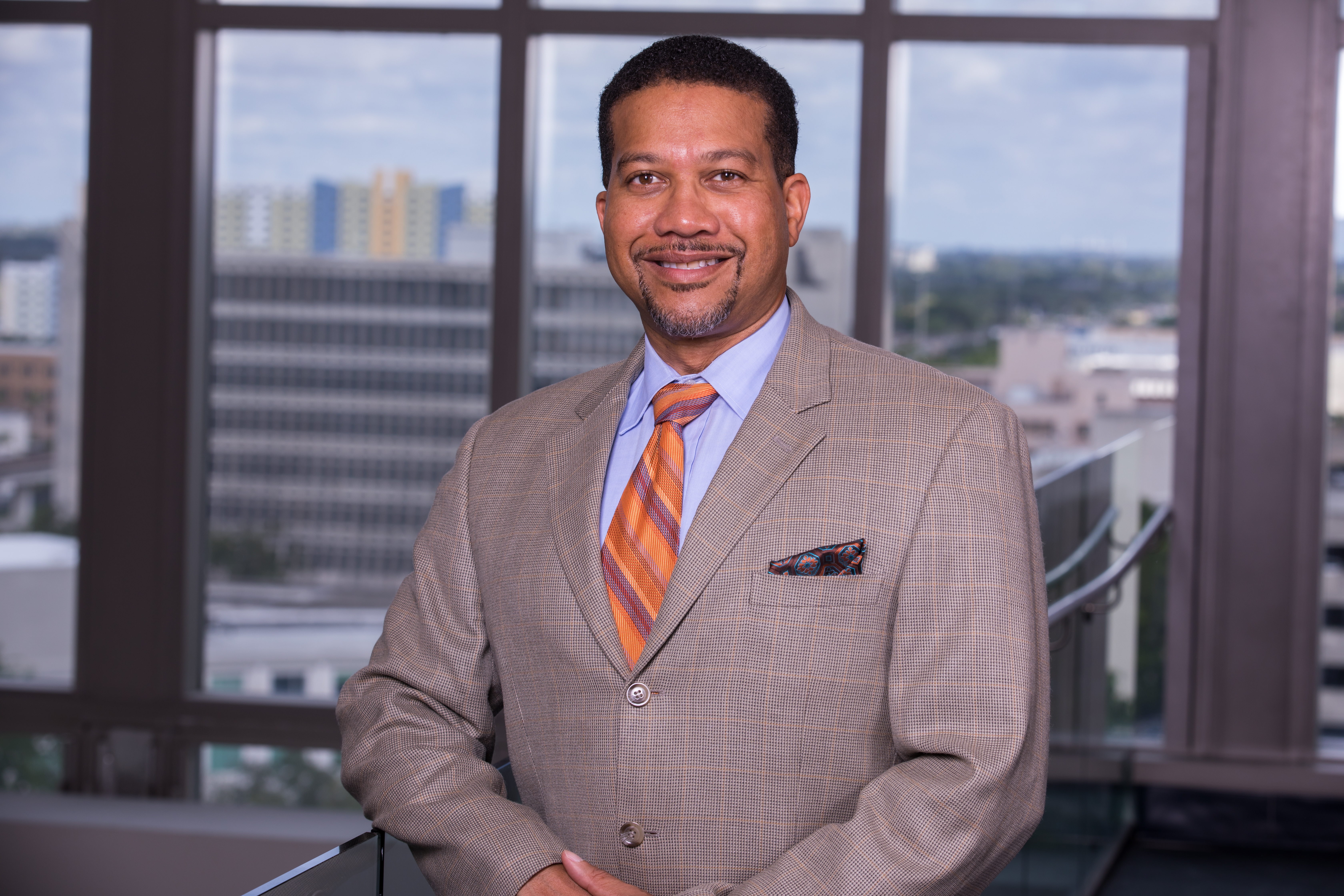
Why is public health important?
“Public health is important because it champions the everyday conditions in which people can live healthy lifestyles. It is structured in such a way that it focuses on improving and protecting community health and well-being across large portions of the population all at once. In public health, the concern is on maintaining equitable systems that prevent illness and injury and have long-term, lasting impacts that can be felt at the local, national, and global scale. Most individuals rarely think about the role public health has in society until a crisis, such as the COVID-19 pandemic, captures our attention. But public health officials work across disciplines on a daily basis to address the root causes of complex health problems and develop practical, cost-effective solutions that protect the health and improve the quality of life for all individuals.”
-- Dr. Roderick King, senior associate dean of Diversity, Inclusion and Community Engagement, director of the M.D./M.P.H. Program, and associate professor at the University of Miami Miller Schools of Medicine
What are the most crucial issues facing Miami-Dade from the perspective of your line of work?
“Miami-Dade County’s Community Health Assessment identifies opportunities for improvement within the county, and in 2019, identified the following health care themes as needing the most improvement within our county: access to care, chronic disease, infectious disease, maternal-child health, and mental health. When considering measures of poverty, MDC has a larger percentage of people living below the federal poverty line (FPL) compared to the state of Florida, with measures 19.9% and 16.1%, respectively. Additionally, MDC has a larger percentage of children living below the FPL with 27.1% of children in MDC compared to 23.3% of children statewide. The geographic area that comprises Downtown/East Little Havana/Liberty City/Little Haiti/Overtown has the highest percentage in the county, with 36.8% of people and 49.7% of children living below the FPL. Poverty levels in MDC are higher than compared with the state of Florida, in American Indian and Alaska native at 22.1% and Black or African Americans at approximately 27.6%.In MDC, the highest population living in poverty are those who are under the age of 18, at 25.4%. MDC’s proportion is slightly higher than the state of Florida (22.3%) and the nation (20.3%). The second significant age group in poverty in MDC are those who are 65 and older, at 21.4%. MDC’s proportion is higher than the state of Florida (10.3%) and the nation (9.3%). Studies show the direct correlation between income and poverty and the ability of one to maintain positive health outcomes. Poverty is associated with other adverse socioeconomic conditions such as limited access to high-quality health care, inadequate shelter, homelessness, substandard child care, unsafe neighborhoods, schools that lack standard resources, and lack of access to nutritious food. As reported by the American Psychological Association, children and teens who are in poverty are more likely to engage in risky behaviors such as smoking and drinking in comparison to their peers.
*Note: Data was taken from the 2019 Community Health Assessment Miami-Dade County, Florida
-- Dr. Roderick King, senior associate dean of Diversity, Inclusion and Community Engagement, director of the M.D./M.P.H. Program, and associate professor at the University of Miami Miller Schools of Medicine
How can individuals or communities advocate for awareness and action around these issues?
“There are a number of approaches to advocacy and community organizing, one of them being a “grassroots” or “bottom-up” approach. In these cases, strong collaborative leadership is required to organize individuals around a specific problem or issue and align singular efforts that will result in your final goal or cause. These aligned efforts can focus on providing education on specific topics via communications campaigns to increase awareness and supporting other individuals/communities/organizations that are advocating for the same issue to reinforce mutually beneficial actions.”
-- Dr. Roderick King, senior associate dean of Diversity, Inclusion and Community Engagement, director of the M.D./M.P.H. Program, and associate professor at the University of Miami Miller Schools of Medicine





